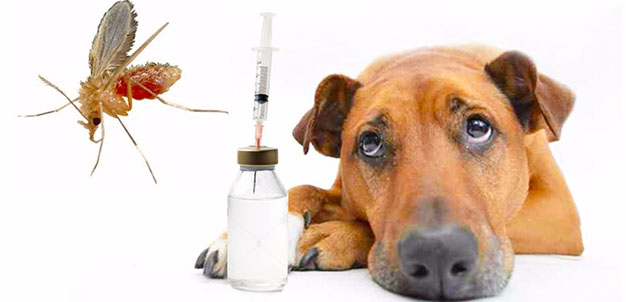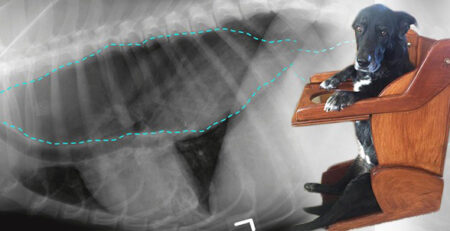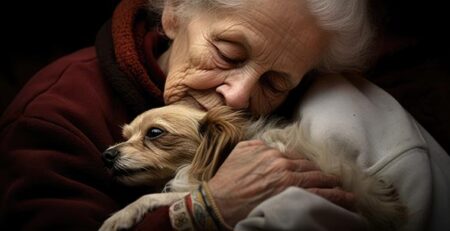Table of Contents
Leishmania: the alleged vaccine is not such because it does not provide immunity for your dog. To understand what it is, what it is really for, and to make informed use of it, read carefully.
Leishmania Infantum is an indirect life-cycle protozoan: meaning, in practice, that it requires an intermediate host (i.e., a vector) to develop into its infectious form in mammals.
The parrot is the dreaded vector of this parasite, and contagion occurs through the insect’s bite on the host mammal.
How to recognize the pappatacio or phlebotomus
The phlebotomus or pappatacio, a Leishmania vector, is a very small, about 2-3 mm, silent-flying, pale ochre-yellow insect.
Parrots strike mainly from May to October and always at night, from dusk to dawn.
The phlebotomist not only inoculates with LEISHMANIA INFANTUM but also promotes its initial penetration and subsequent spread through saliva, which is rich in vasodilating substances that facilitate the spread of infection in the animal’s body.
Animals that can contract leishmania
Leishmania affects not only animals but also humans.
Among animals, the dog is the most affected.
Importantly, there is no transmission given by human-dog and dog-dog proximity.
It is always the insect that acts as the infectious vehicle, and in order to transmit the protozoan, it must go through its own biological cycle.
Not all infected animals become truly leishmanic: the outcome of the infection is closely related to the type of immune response that is triggered.
This is how the body of a dog infected with leishmania reacts
The ‘body of the dog that comes into contact with the parasite can respond in two different ways, and the establishment of either situation will determine or not, the onset of the disease.
It all depends on the reaction of the dog’s immune system.
We can divide dogs into two categories: those resistant to Leishmania and those receptive.
- Resistant dogs produce a substance, called TH1 is the so-called activation of cell-mediated immunity.
It is a response by the immune system that does not involve antibodies, but rather involves the activation of killer cells of the pathogen, whether virus or bacterium, called macrophages.
- Receptive dogs, on the other hand, produce TH2: this substance activates the antibody immune response, which, paradoxically, is responsible for the progression of infection to disease.
The continuous stress on immunocompetent cells results in immunological imbalance: antibodies are ineffective and the pathogen cannot be eliminated.
The establishment of this type of immune response inevitably leads to the development of clinical symptoms of the disease.
Understanding what leishmania really is
Canine leishmania can be considered the consequence of a specific immunodeficiency, rather than a simple infection.
The immune system is more complicated than previously thought, and at least the two different categories, Th1 and Th2, are schematically distinguished.
The fundamental question, which remains essentially unresolved, concerns knowledge of the factors that induce a predominantly Th1 or predominantly Th2 response.
Leishmania is an immunodeficiency therefore the vaccine is useless
The mechanism of action of vaccines is simple: they cause increased levels of antibodies to a disease-specific antigen (virus or bacterium).
In the case of Leishmania, what has been presented as a “vaccine,” technically speaking, is actually not.
The goal of this product is not aimed at antibody production but is to stimulate the triggering of a cell-mediated response.
The ‘inoculation does not zero out the probability of a dog becoming ill, but only reduces the likelihood of it happening.
The vaccinated dog may still become infected, and the infection may actively develop or not.
Leishmaniasis vaccination is only complementary to existing repellent products.
The only practically feasible interventions, which provide variously encouraging results, are phlebotomist sting prevention interventions.
Hopes for vaccination and new, finally effective, therapeutic principals are now focused on research investigating the intimate relationships-genetic and molecular-between Leishmania, macrophage cells, and the Th1/Th2 immune response.
The curability of leishmania
Canine leishmaniasis is, yes, treatable but not curable parasitologically.
The disease has a sometimes very long incubation period, but detecting the presence of the parasite through periodic blood testing allows timely implementation of appropriate treatment.
When the dog’s condition is not critical, action is taken in time, and kidney function is not irreparably compromised, it normally results in the disappearance of some symptoms, especially skin symptoms.
The dog can lead, even for a long time, a satisfactory existence with a good quality of life.
It is also true that unfortunately, the dog may also exhibit relapses that require re-treatment, so clinically cured individuals need to be checked periodically.
All the symptoms to watch out for
Not always immediately identifiable, leishmania symptoms can appear singly or in groups, and the greatest damage involves internal organs.
The most common are:
– Alopecia (hair loss) and ulcers in the peri-ocular area
– abnormal nail growth
– Epistaxis (nosebleed) single or bilateral
But also:
– Desquamative dermatitis localized mainly on muzzle, paws and limbs
– lymph node enlargement
– spleen enlargement
– anemia
– polyarthritis
– renal failure
Detecting and preventing leishmania
To detect the disease, it is important to monitor for suspicious symptoms, take the dog to the veterinarian periodically, and have blood and urine tests at least once a year.
It is critically important to make year-round use of specific repellent products expressly designed and indicated to protect against phlebotomist stings.
Always see your veterinarian for advice on choosing the best prescriptions, and have your dog checked regularly in order to ensure that he or she has not been infected.
The Staff Veterinarians at La Veterinaria Clinic are at your complete disposal to perform your dog’s periodic checkups and specific examinations to assess its health status.











